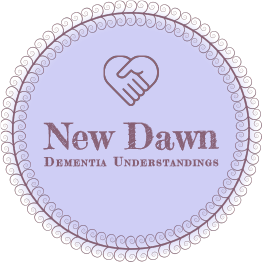We blame functional loss in persons living with Dementia on their Dementia. Maybe we need to look a little deeper.
We are probably most familiar with the work of Maria Montessori as it relates to childhood education, but the principles of Montessori learning are foundational and can be applied to any age group. Embracing a Montessori inspired model of Dementia Care does not relegate adults to childhood status. What it does do is allow us to focus on the strengths which remain in those living with Dementia in a habilitative and positive growth environment. Yes, I used the word “growth” in the same sentence as “Dementia”. It is quite possible to continue to learn and grow while living with Dementia.
For too long we have embraced a model of Dementia Care which fosters our comfort with the concept of Therapeutic Nihilism. As Dr. Cameron Camp explains, Therapeutic Nihilism is a belief that those with Dementia cannot learn new things, all failures are the fault of Dementia, and there isn’t anything we can do but be patient “because they have Dementia”. Dementia may present challenges and impediments, but it does not take away one’s life and should not reduce their dignity unless we allow it to do so.
We see those with later stage Dementia and observe a myriad loss of function with word finding, cognitive recognition, and memory. We blame it on their Dementia. We seriously need to stop blaming Dementia. Dementia may present challenges and perhaps alter the course of one’s life, but while Dementia may effect one’s life, it is our current model of Dementia care which annihiliates their individuality and uniqueness as a human being and renders them helpless. We blame it on their Dementia and effectively give up on any possibility of personal growth and self-reliance. We need to embrace and adopt a Habilitative model of Dementia care which focuses on the strengths and abilities which remain, not the impediments which may be imposed by Dementia. Allow them to do for themselves those tasks which we automatically assume they cannot perform “because they have Dementia”. In urban speak, give them a chance to screw something up before we assume they will. In the words of Maria Montessori, “what you do for me you take from me”. You may counter that by saying “what if they hurt themselves?”. That’s a valid concern and can be answered with a program of observation and assistance when required rather than an approach which takes away their ability to at least try to do things for themselves. A Dementia diagnosis is not a no-knock-warrant into their lives. Ask them what they want. Their logic may seem a bit convoluted to our linear way of thinking things through, but it makes sense to them. We need to respect their wishes, and meet them where they are in order to facilitate their wishes and promote a sense of self-esteem and worth. We talk about “Person Centered Care”…what if we think of it in terms of “Person Centered Assistance” whereby we are there to help them achieve rather than tend to everything without their input or involvement in the program? When we use the word “care” in implies invalid status; when we use the word “assistance” it assumes functionality with a little help where it may be needed.
What if we listened to them without prejudice and found alternate methods of teaching new skills? Methods which encompass tactile and demonstrative instruction rather than verbal instructions. Methods which allow a person living with Dementia to carry on with skills which they’ve honed over a lifetime? IE: allow a person who has always enjoyed cooking, or been a professional Chef to assist in preparing a meal rather than assume that because they have Dementia they’ll surely use a carving knife to cut out the vital organs of the entire staff and residential population. Yes, like it or not, under our current model of Dementia care we’ve adopted that as a valid concern. In our zeal to provide safety and provide what we’ve come to believe is best for them we often put them in a functional straight-jacket. Of course we’re bound to see someone in a later stage of Dementia who is lacking in functional abilities. Perhaps it’s because we haven’t allowed them to use those abilities since day one of their diagnosis. Adopting an assistive, habilitative approach to Dementia care doesn’t mean tearing down everything we’ve built over the years. We don’t need to tear it all down, but we can patch up the cracks and build upon it. We can come to understand that what we accept as “behaviors” are actually a reaction to human needs which are not met. These Human needs go further and deeper than food, clothing, shelter, and an available toilet and include socialization, self-esteem, emotional safety, and self-satisfaction. Are we meeting all of these needs and allowing for self-esteem and continued emotional growth of the individual or simply not looking in that direction “because they have Dementia”?
